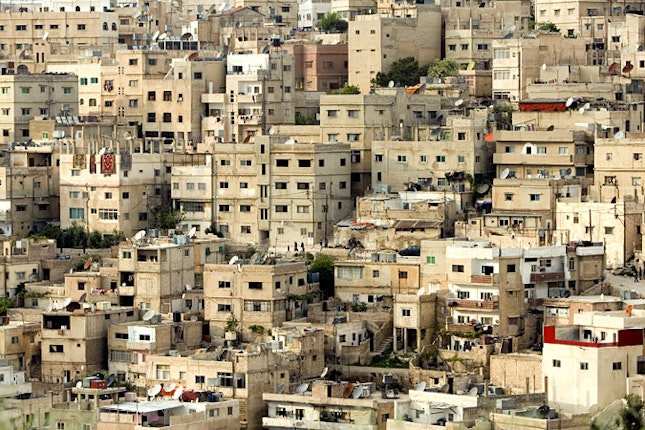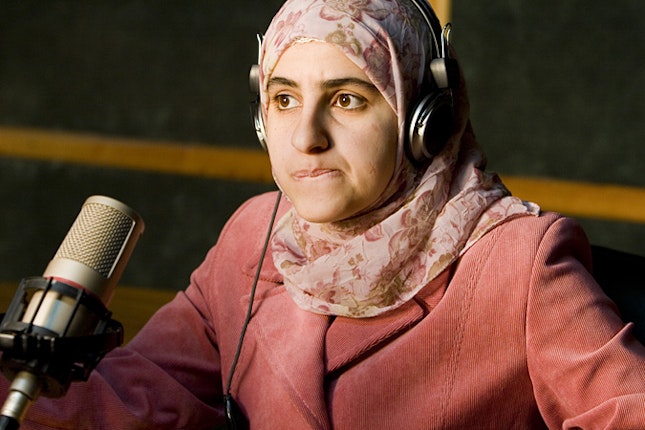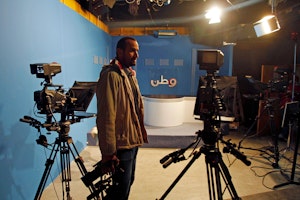Internet Radio in Amman—Reporting Local Problems Without Censorship
-

Seven years ago, Daoud Kuttab, a journalist based in Amman, wanted to start an independent radio station, but Jordan’s government still held a monopoly on the broadcast media. The airwaves offered listeners and viewers little more than vapid entertainment and a constant drone of reports and commentary on the latest crises in the Middle East. “Everyone was talking about everyone else's problems and not their own,” Kuttab says. “I wanted a station that would focus on our own problems, right here in Amman.” © Oraib Toukan -

Technology opened a pathway around Jordan’s media-ownership restrictions, allowing Kuttab to create AmmanNet, a community Internet-radio station, with Open Society as one of its supporters. AmmanNet began making a name for itself when, at a demonstration by local university students, authorities shooed all television cameras from the campus but did not remove people carrying cell phones. AmmanNet’s reporter called the station with real-time interviews with the demonstrators. The presence of AmmanNet on the web helped convince lawmakers to liberalize Jordan's broadcasting laws, giving the station a second home on the FM dial. © Oraib Toukan -

“AmmanNet is unique,” Kuttab says. “We don't practice self-censorship. We are not owned by the government. We are not owned by businesspeople in bed with the government. So they can't stop us from doing things we believe in. We have become the trendsetter in the media here. Many times we break a story, the local newspapers pick it up, and the government reacts to the newspaper stories.” © Oraib Toukan -

AmmanNet produces fact-based local stories, focusing the public’s attention on nagging problems like tainted drinking water, sporadic rubbish pick ups, potholed streets and roads, petty corruption, unreliable bus service, and rising meat and gas prices. © Oraib Toukan -

AmmanNet’s call-in shows and man-in-the-street reports from sidewalks, marketplaces, and bus stops have encouraged ordinary people to press public officials to answer their questions and complaints. “A year and a half ago, people would rarely comment on a political story,” Kuttab says. “There was a culture of fear. If you talked about a controversial story, even if a journalist asked a direct question, people would not comment.” © Oraib Toukan -

Kuttab insisted from AmmanNet’s beginnings that its reporters adhere to strict guidelines to assure the accuracy of their stories: “I said no stories without sound bites, because they give stories credibility. Without sound bites, you can cheat people by saying anything you want.” © Oraib Toukan -

AmmanNet has become a model for Internet broadcasting efforts across the Arabic-language world. The station's staff provides week-long training programs using open-access software. “Practically anybody can start a radio station on the Internet,” Kuttab says. “You don't need a studio to create radio. Digital audio recorders are inexpensive. You can record actualities on a disk, bring the recorder back to a broom closet and record voiceover narration, go onto a computer, and edit it into final form.” © Oraib Toukan
AmmanNet, a community internet-radio station supported by the Open Society Foundations, has become a model for broadcasting efforts across the Arabic-language world. See the slideshow above to learn more.
Topics


